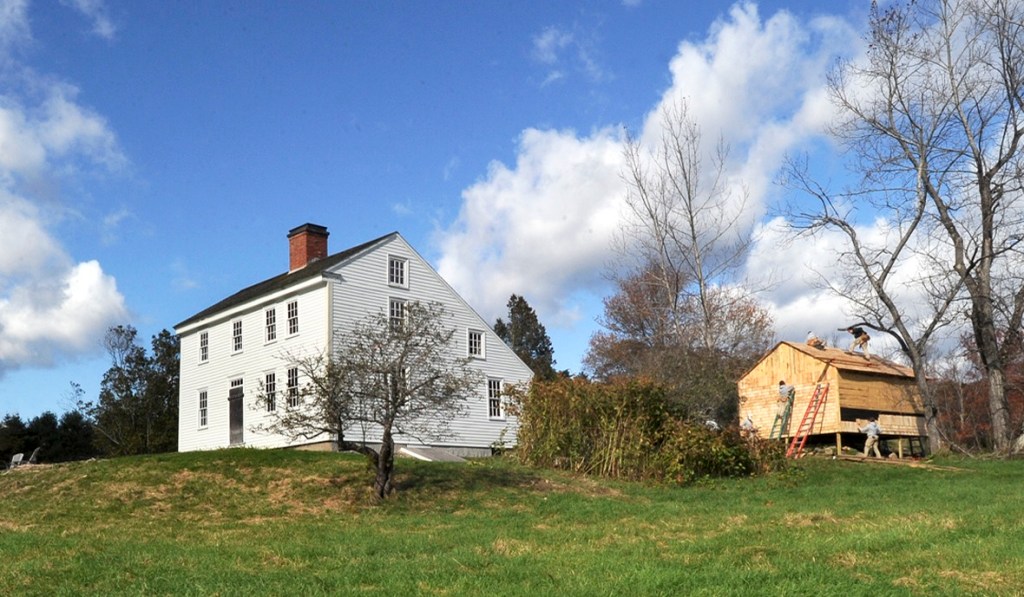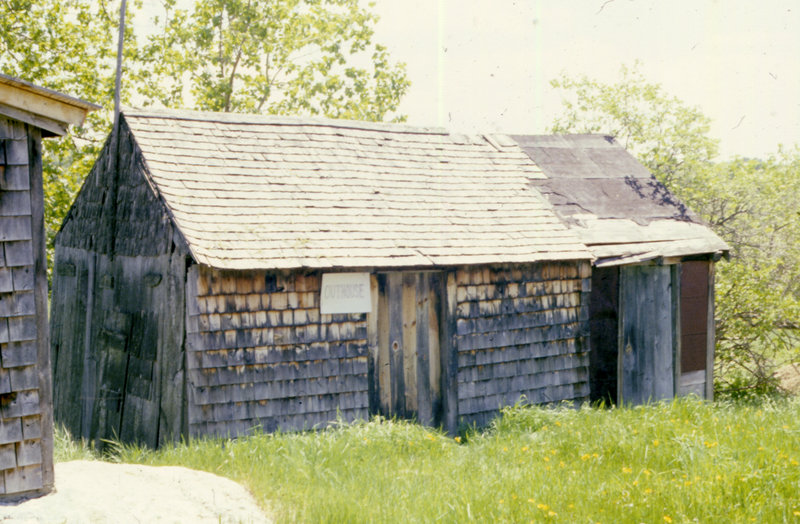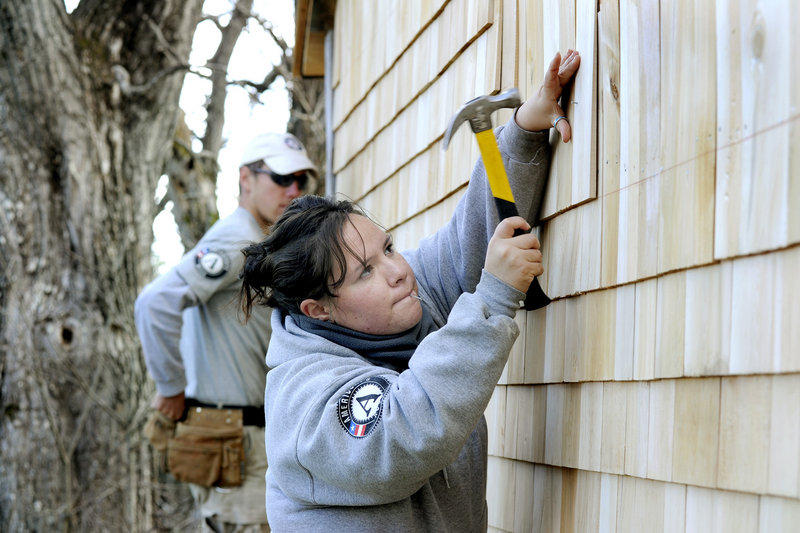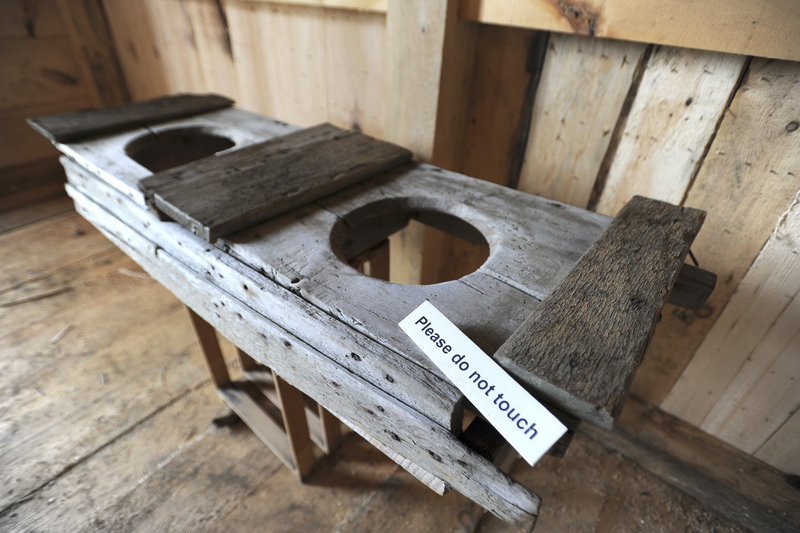FREEPORT – There was a time when every backyard in Maine had a privy.
Today, outhouses are a rarity regulated by environmental officials and eulogized in wistful poems pinned to rustic cabin walls.
The Freeport Historical Society is rebuilding the lost privy at historic Pettengill Farm so visitors can imagine what it was like to venture out in the rain or snow to take care of business.
With help from grants and volunteers, the project animates the story of the 1810 saltbox-style farmhouse overlooking the Harraseeket River and furthers the society’s educational mission, said Christina White, executive director.
“When kids come to the farm, they always want to know where the bathroom is,” White said. “Those without camps or experience camping have no idea what it’s like to live without modern conveniences.”
The 140-acre farm is named for its last resident, Mildred Pettengill, who lived at the beautiful but remote property until 1970, when she was in her late 80s.
Owned by the society and listed on the National Register of Historic Places, the white clapboard house is the epitome of a New England saltwater farm. It’s sparsely furnished and still has no central heating, plumbing or electricity. It’s open for tours on special occasions.
Over the years, the farm’s outbuildings have crumbled and fallen, including a 34-by-40-foot barn and the privy shed, which was built in the mid-1800s and included a storage area for tools.
The privy shed collapsed in the late 1980s or early 1990s, said Ned Allen, the society’s collections manager. The weathered two-hole seat was rescued from the rubble and is displayed at the society’s headquarters with a sign, “Please do not touch.”
The privy shed included a small addition, built in the 1930s, when increasing public health regulations required milk intended for sale to be kept in a well-ventilated, water-cooled spot.
The 21-by-14-foot replica shed encompasses the original privy, tool storage and milk storage areas. Local Eagle Scouts rebuilt a smaller. earlier milk shed nearby in 2006.
The privy project started in September and will be finished Friday. It was funded by a $5,000 Building Communities grant from Maine Post & Beam in Yarmouth. The firm also helped to design the replica privy shed from old photos.
“We tried to keep it as true to the style of the original shed as possible,” said Brett Hellstedt, co-owner of Maine Post & Beam. “We increased the size and durability of some structural components, like the pressure-treated decking and posts, to increase the longevity of this building.”
Materials for the cedar-shingled shed were donated by Home Depot, Hancock Lumber and Sakrete. Volunteers also milled rough boards from trees cut on the farm. As a result, the $20,000 to $25,000 project will cost the society a few hundred dollars.
The privy is being built by a nine-member AmeriCorps team made up of young people from across the United States. The team is splitting its time between the privy project and a Habitat for Humanity project in town.
“We don’t work on too many historic structures,” said team leader Griff Ryan-Roberts, 23, of Sacramento, Calif. “We’ve been able to build this project from the ground up and see the impact we’re having on the organization we’re helping.”
For now, the shed won’t be a functioning privy, White said. In the future, the society may install a composting toilet in the shed so portable toilets wouldn’t be needed for special events.
“It would be nice to give people a little comfort when they’re here visiting or working at the house,” White said.
Staff Writer Kelley Bouchard can be contacted at 791-6328 or at:
kbouchard@pressherald.com
Send questions/comments to the editors.






Success. Please wait for the page to reload. If the page does not reload within 5 seconds, please refresh the page.
Enter your email and password to access comments.
Hi, to comment on stories you must . This profile is in addition to your subscription and website login.
Already have a commenting profile? .
Invalid username/password.
Please check your email to confirm and complete your registration.
Only subscribers are eligible to post comments. Please subscribe or login first for digital access. Here’s why.
Use the form below to reset your password. When you've submitted your account email, we will send an email with a reset code.